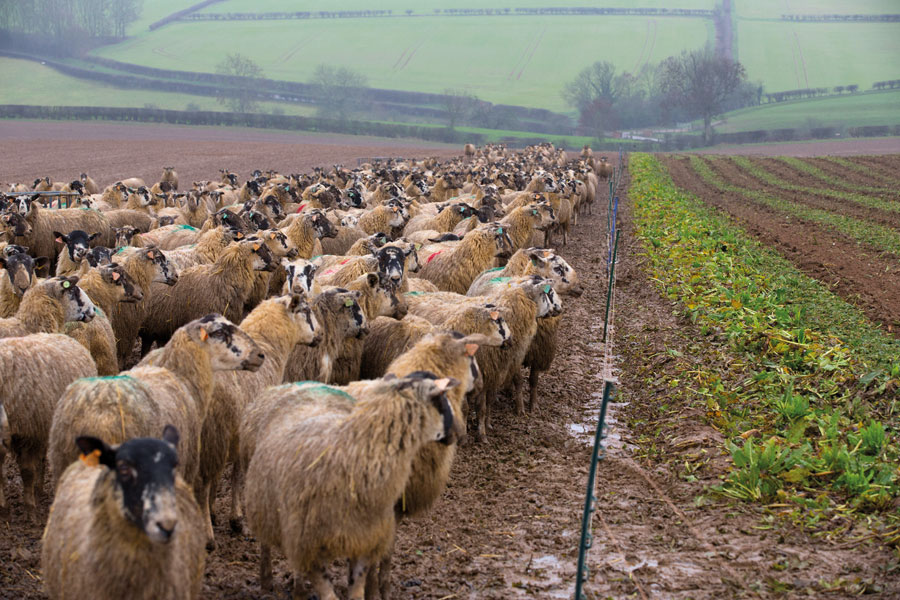Vaccinate stock before grazing fodder beet
2nd January 2022
Farmers planning to turn sheep and cattle onto fodder beet this winter are being encouraged to vaccinate stock against clostridial diseases before giving them access to the crop.
Stock should also be transitioned onto fodder beet gradually, warns Iain McCormick, veterinary investigation officer with SRUC.
“Fodder beet is a highly palatable, very digestible winter feed crop that has increased in popularity on farms across the country. It’s certainly a useful ruminant grazing feed during the winter months when grass is short. This low dry matter crop is often utilised in situ; with the leaf tops containing higher levels of protein and macro-minerals compared to the bulbs, which have a high energy and sugar content,” he says.
Unfortunately, however, Mr McCormick adds that it is not uncommon for younger cattle and/or hoggs/store lambs to suffer sudden death when first transitioned onto fodder beet.
“The change of diet can be stressful for younger stock and be a trigger for clostridial organisms to multiply rapidly. On post-mortem investigation, we typically find a clostridial perfringens type D (pulpy kidney) overgrowth in the small intestine. This is caused by excessive sugars from the low dry matter fodder beet washing through the rumen rather than being converted there and – in combination with high water flows – provides an ideal environment for a clostridial over-growth to occur.”
Mr McCormick says that deaths can also occur in more resilient, older cattle, albeit later on once they have achieved maximum intakes. “This occurs typically three to four weeks after the transition period onto the fodder beet.”
He adds that clostridial spores can also be found in the soil – which can be an exacerbating factor – and means intakes of these harmful pathogens tend to be higher than with other feedstuffs.
Mr McCormick advises farmers interested in feeding fodder beet to make sure sheep and cattle are vaccinated against clostridial diseases well before they are turned onto the crop – and to use an electric fence so that early transition intakes can be controlled. “Introduce stock to the crop gradually,” he says.
“To protect stock health, vaccinate them beforehand,” he urges. “The clostridial disease vaccines available work well and are highly cost-effective. Farmers are particularly used to vaccinating pregnant ewes and later on their lambs once colostral immunity has waned, but it also makes sense to boost vaccination cover in the early winter prior to grazing any fodder beet. It’s well worth protecting cattle too to avoid any unnecessary stock losses.”
Mr McCormick adds that acidosis, listeriosis and trace element imbalances can also be issues when grazing stock on fodder beet if they are not transitioned properly. Farmers wanting further advice should consult their vet.

